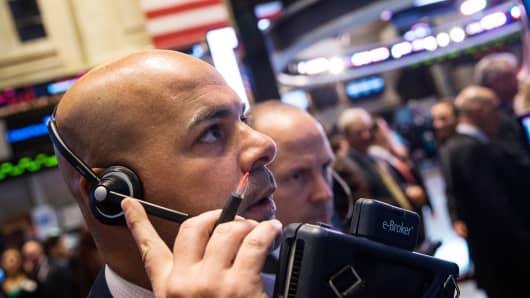The Dow Jones Industrial Average stood below the key 15,000 level before the opening bell Thursday and U.S. stock futures pointed to a lower start following the 6.4 percent plunge overnight in the Nikkei that put the Japanese stock index in bear market territory again.
(Read More: Nikkei Plunges 6.4%; Re-Enters Bear Market)
The dollar slid to its lowest level against the Japanese yen in 10 weeks in Tokyo trading amid uncertainty about when the Federal Reserve might start scaling back its $85 billion a month bond-buying program. Fed policymakers meet next week and investors are hoping for some answers.
The Dow had another volatile session on Wednesday—up 119 points shortly after the open, but closed down triple-digits for the second-straight session and lower for the third day in a row for the first time this year.
On CNBC's "Squawk Box" on Thursday, leading market watchers and economists gave their predictions for where the markets may go from here and the possible timing of the start of Fed tapering.







